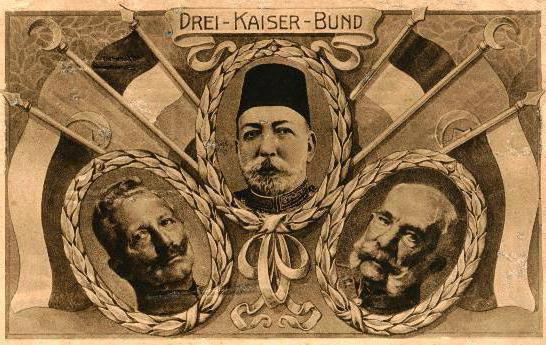The Schonbrunn Convention became the most important stage in the formation of one of the most famous European political and military alliances in the last third of the 19th century. The signing of this document was preceded by the rapprochement of the Russian Empire with Germany and Austria-Hungary. At the time under review, the foreign policy situation of our country in the international arena was extremely difficult due to the defeat in the war, so the signing of the document in question was of fundamental importance for its way out of isolation.
Background
The Schönbrunn Convention is an agreement between Russia and Austria-Hungary, signed in order to maintain neutrality between the parties to the agreement. However, in order to understand its meaning and significance, it is necessary to briefly outline the conditions in which our country found itself after the defeat in the Crimean War. Its results undermined the prestige of the empire in the European arena, largely due to the fact that the state lost the right to keep the navy in the Black Sea. Perhaps this was the hardest blow for the country. Within twenty years after the end of the war, it was Germany that in many ways contributed to overcoming Russia’s international isolation, in which she found herself after the defeat. Relations with Austria-Hungary were more complicated due to the fact that the interests of states clashed in the Balkans. Nevertheless, in the early 1870s there was a rapprochement of these states.
Introduction and first paragraph
The Schönbrunn Convention (year of signing - 1873) includes a number of important provisions on the regulation of relations between our country and Austria-Hungary. The document opens with a rather lengthy introduction, in which both emperors talk about their desire to maintain universal peace on the continent and take all necessary measures to maintain it. This statement sounded very significant in the post-war decade, when many still had in their memory the consequences of the Crimean War. In the first paragraph, the parties stated that in case of private disagreements they would adhere to the above general principle on the need to maintain peace and balance on the mainland. The Schönbrunn Convention further provides for the use of military force in the event of any threat to the disruption of peace and order on the continent. This veiled article indirectly hints at the possibility of joint action by states in the event of a military threat.
Third and fourth paragraphs
In the next article, the emperors make a very important statement that in the event of a threat of attack by a third power, both emperors will first agree among themselves on further actions. This point is important in that it does not provide for mediators in resolving the issue of regulating a military conflict, but, on the contrary, argues that the rulers themselves will directly agree among themselves regarding joint action against a common enemy.
The Schonbrunn Convention provides for the conduct of hostilities. The document expressly states that if a war starts, both parties will sign an additional pact on joint military operations. This provision testified to the fact that our country at the time under review has already emerged from international isolation and was ready to defend its interests in the international arena.
Value
The Schonbrunn Convention is an important stage in the design of a new military-political bloc on the mainland. The signing of this document was a step in the formation of the Union of three emperors: Russia, Germany and Austria-Hungary. Our country has taken this step in order to oppose this bloc to Anglo-French influence on the continent. This was all the more important because it was these two countries that were the main opponents of the state in the previous war.

Thus, the legalization of the union marked the beginning of the Schönbrunn Convention. Briefly, its significance can be described as follows: it laid the foundation for the division of European political forces into two camps. However, it did not last long: by the end of the 1880s, serious disagreements of our country with its allies had been outlined, primarily because of the Balkan issue. Then Russia began rapprochement with France, which by the end of the century became one of the main creditors of the Russian economy. This marked the beginning of the design of a new block - the Entente.